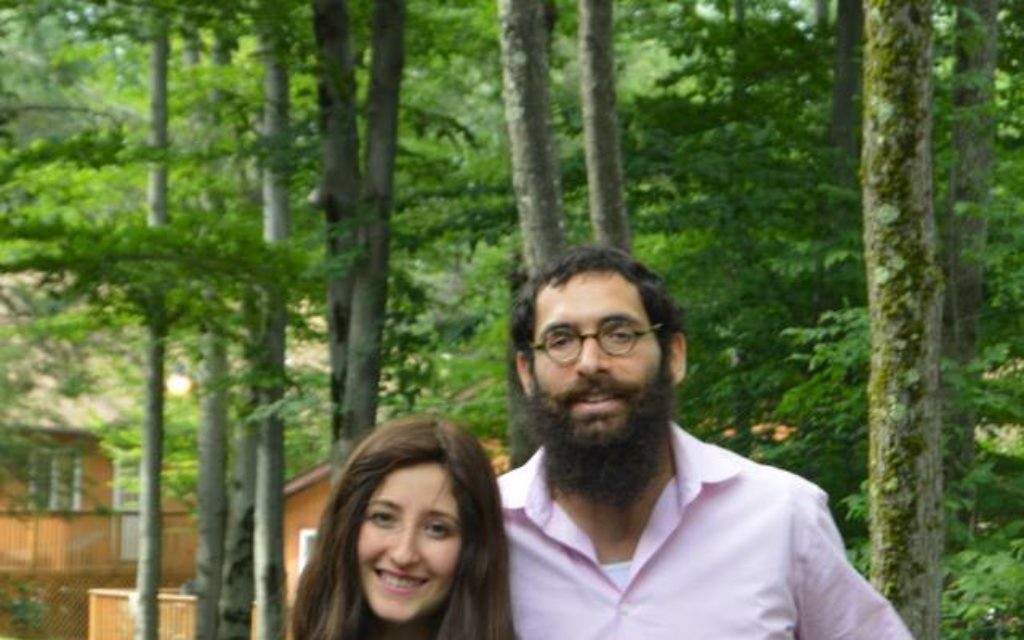Chabad’s Campus Work Takes on Crimson Hue
Rabbi Kussi Lipskier has been around a bit. He ran an orphanage in Ukraine and escorted backpacking Jewish kids around Brazil. He led Birthright trips to Israel and held posts in far-flung places such as Guatemala, Thailand and Morocco.
That’s a lot to cram in before age 27.
His latest stop? The University of Alabama at Tuscaloosa, where he and his wife of less than a year, Rosie, have just opened a Chabad house near the main campus.
Get The AJT Newsletter by email and never miss our top stories Free Sign Up

This time he is staying put. “This is for life; it’s long-term,” he said, and he’s thrilled about his new home. “It’s awesome. The Southern hospitality thing is so true. I found everyone to be very open and kind.”
The Lipskiers plan to provide a comfortable, open and traditional environment for Jewish students at the new Chabad center, which joins Hillel in providing services to Jewish students at Alabama.
“What I’d like to accomplish is creating a home for Jews in the city, a place for students to come and experience Judaism,” Rabbi Lipskier said.
The Emory University alumnus also wants to help students make the transition from home to college. “It’s hard for them to leave home. Some struggle with that. We will give them 100 percent support — emotional, psychological, whatever they need. That’s why we are here. We can discuss it and show them where to go. So first their physical needs, then their spiritual needs.”
The Lipskiers are establishing Shabbat services and meals on Fridays and Saturdays, weekly Torah classes, lunch-and-learn sessions, and programs on Jewish holidays.
“What I love about dealing with students is that it’s such a pivotal time in their life. They are searching; they are looking for meaning,” the rabbi said. “If they want to further their Judaism, we’ll give them answers so they can know what it is.”
He wants to create more Jewish awareness and pride on campus and have students “not be embarrassed that they’re Jewish, to have this energy around and available for them.”
Tuscaloosa itself has an interesting Jewish history. A small group of German and Hungarian Jews first migrated there after the Civil War, Rabbi Lipskier said. One of them was Bernard Friedman, who started out as a teenage peddler and became a dry-goods merchant, real estate investor, alderman and advocate for public education in the city during the 19th century. Friedman Hall at the university is named after his family.
Temple Emanu-El, Tuscaloosa’s first and only synagogue, was founded in 1903.
Rabbi Lipskier’s biggest challenge is monetary. “There is an umbrella organization (Chabad-Lubavitch), but we are independent. We have to raise money for all the costs of the home. Otherwise, it’s just getting out there and spreading the word.”
He said the couple left some skeptics in New York when they moved to Alabama. “Friends in New York asked us, ‘Do you think you can reach every Jewish kid on campus?’ I said yes, absolutely. I think that’s doable. I don’t think it’s really a challenge; it just needs to be done. It’s an atomic reaction: This person reaches another person. Have kids help.
“So far, the response has been amazing. After just a week here, I had 26 kids in my home. I could never have imagined that. If it keeps growing, I might have to look for a bigger place.”





comments